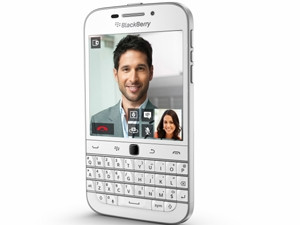
BlackBerry, which has seen its market share eroded in recent years, is rapidly falling out of favour with South Africans - reversing its once dominant position. This comes at a time when the company is increasingly shifting its focus to the enterprise market, and its software offerings.
BlackBerry, which has been battling to grow its top line, is also collaborating with other handset makers such as Samsung, and making its software available to them, prompting analysts to suggest it will eventually cease being a mass market device maker.
The handset maker has been losing buyer share recently and had 0.4% of the market at the end of 2014, behind Windows Phone, according to the IDC. The research house notes the Toronto-based company posted the only year-over-year decline among the leading operating systems - Android, iOS and Windows.
It only shipped 5.8 million units last year, falling 69.8% from 2013 levels, according to the IDC. The company went through a year of rationalisation last year, and CEO John Chen anticipates 10 million units will be shipped in 2015, returning it to profitability, adds the IDC.
Hardware vs software
Locally, the once-popular device is also falling out of favour and will soon no longer rule the roost. World Wide Worx's latest stats show its share among the youth will drop to 12% in the next year or two, while its stake among adults will fall below 20% this year.
Currently, BlackBerry is the top phone among youth, with a 32% stake, ahead of Samsung at 27% and Nokia at 21%. But this will change as 43% of students aim to buy a Samsung phone next, with the iPhone coming in second at 17%, followed by Nokia at 11% and BlackBerry still making a showing at 10%.
World Wide Worx MD Arthur Goldstuck says people are migrating away from BlackBerry and it will eventually only make handsets to have a "test bench" for its products.
Liron Segev, Swift Consulting CEO and tech blogger, notes South African users fall into two categories: those who got their hands on a pre-BlackBerry 10 product and will continue to use it because it is cost-effective despite being slow and clunky; and those loyal fans who will always upgrade to the next BlackBerry.
Segev says the largest base of users is in the first group, but this bunch will eventually dwindle as the phones break and cannot be replaced with those that run on BlackBerry Internet Service. He notes, while BlackBerry unveiled four new phones at Mobile World Congress 2015 (MWC), indicating it is not out of handsets, it is moving into niche offerings for the professional. "BlackBerry is a software company; they just need to admit it," says Segev.
At MWC, BlackBerry provided a sneak preview of a curved device, but also said it was increasing its focus on its software portfolio and making solutions like enhanced security and billing available to other handset makers as it seeks to bolster its top line.
In the third quarter of the year, BlackBerry reported a bigger-than-expected drop in revenue, although it had eked out a small adjusted profit and began generating cash flow again. Revenue fell to $793 million from $1.19 billion a year earlier, falling short of analysts' expectations of $931.5 million.
CEO John Chen said, however, the company has committed to its software offerings as a way to make more income. "This is not a five-year plan; this is a five-year plan with every year making money."
Segev notes BlackBerry's moves mean it is getting out of the mass market, and will target security-conscious enterprises instead. "There is an entire segment of the market that doesn't want to play games on their phones; they just want them for work."
BlackBerry SA did not respond to a request for comment.
Share